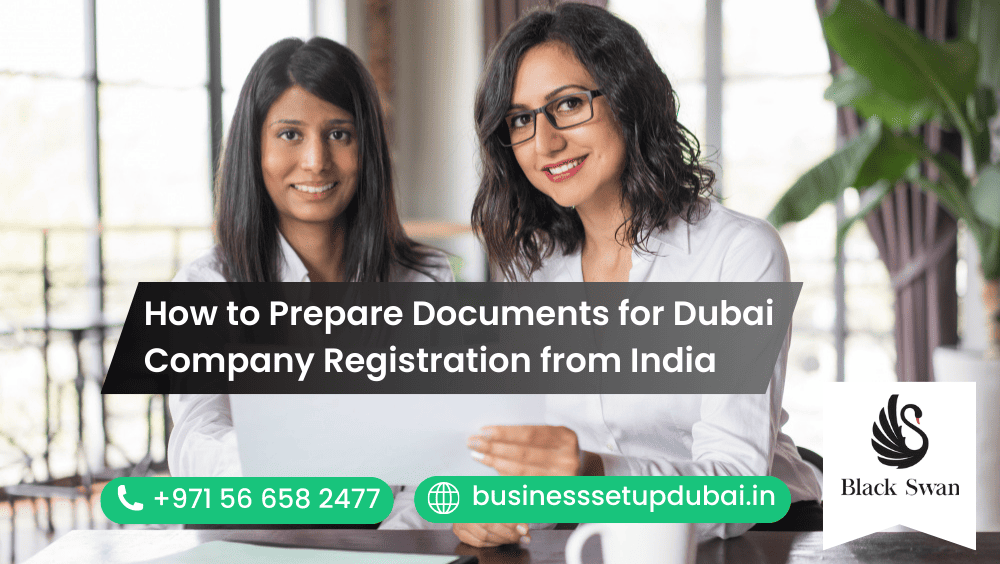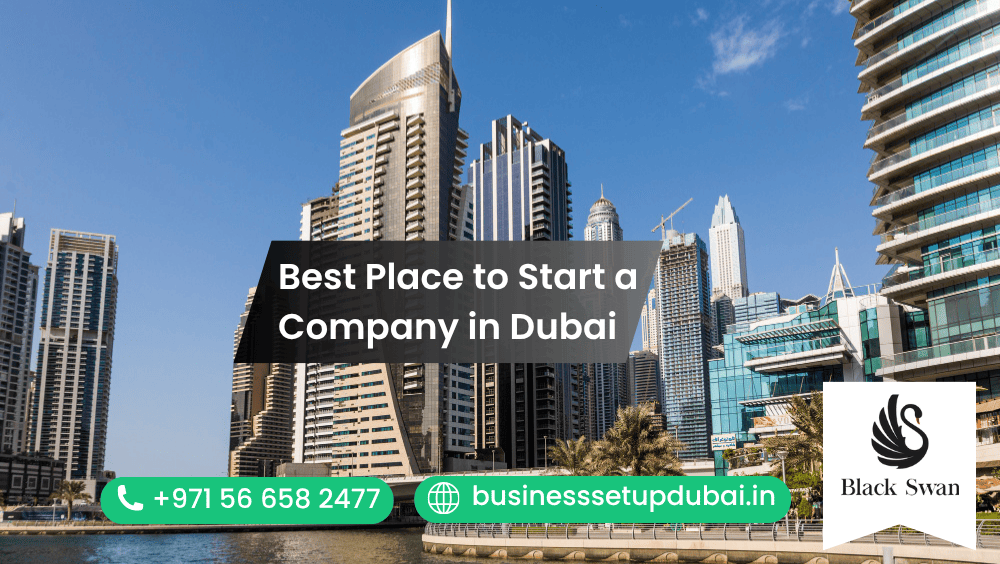If you’re an Indian entrepreneur planning a Dubai entry, the big question usually sounds simple: “Can I own the company fully?” Fortunately, in most cases, yes. UAE company law and local licensing reforms have enabled all nationalities to establish and be full owners of businesses in the UAE across a multitude of activities.
That said, the right route depends on what you sell, where you’re selling it and how you’d like to bill clients. So, let me deconstruct it in a no-frills, Indian-founder friendly manner.
What “100% foreign ownership” really means in Dubai
100% foreign ownership means your company’s shares can be held entirely by you (and/or your foreign partners) without a UAE national shareholder for eligible activities. On the mainland, Dubai has opened 1,000+ commercial and industrial activities for full foreign ownership, while a limited set of strategic sectors still carry restrictions.
Just as importantly, “100% ownership” does not mean “zero compliance.” You still need proper licensing, corporate documents, and renewals—however, you control the equity. Get details on Business Setup in Dubai.
The 2 main routes Indians use to get 100% ownership in Dubai
Route A: Mainland company (DET / DED license) – best for selling across the UAE
Choose mainland when you want to:
- Trade directly anywhere in the UAE
- Sign local contracts and invoice UAE clients freely
- Open branches and scale into government or large B2B projects (depending on activity)
Dubai’s mainland licensing authority (Dubai Department of Economy and Tourism—DET) allows full foreign ownership for many activities, with exclusions in specific sectors.
Route B: Free zone company – best for export, e-commerce, and international business models
Choose a free zone when you want:
- 100% foreign ownership by default
- Strong import/export and re-export advantages
- Quick setup processes and bundled packages (license + visa quotas, etc.)
UAE free zones are widely promoted for full ownership and profit repatriation benefits. Looking for a Company Formation in Dubai Free Zone?
Mainland vs Free Zone: quick comparison (Indian founders love this table)
Topic
Mainland (DET)
Free Zone
Ownership
Often 100% foreign ownership (eligible activities)
100% foreign ownership (standard)
Where you can sell
Across UAE market (subject to license activity)
Primarily within free zone + international; mainland selling may need additional structure
Best for
Retail, restaurants, local services, contracting, general trading (activity-dependent)
Trading hubs, e-commerce, logistics, consulting, international operations
Office options
Flexi-desk/office depending on activity
Flexi-desk/office/warehouse options by zone
Setup speed
Fast, but depends on approvals
Often very fast with packaged options
Tip: If your plan includes UAE walk-in customers or regular invoicing to UAE companies, mainland often feels smoother. Meanwhile, if you’re running cross-border trade or a digital-first model, free zones can be ideal.
Step-by-step: How Indians can secure 100% foreign ownership in Dubai
Step 1: Confirm your business activity (this decides everything)
So first thing, go for the exact activity: trading, IT services, marketing, management consultancy, manufacturing field either to foodstuff trading or building materials etc.
Why this matters: Eligibility for 100% ownership is activity-based on the mainland, covering certain sectors in which foreign ownership is still restricted (telecoms, banking, defense-oriented occupations).
Step 2: Decide jurisdiction: Mainland or Free Zone
Now match your activity to your market plan:
- Want UAE-wide local selling? → Mainland
- Want global trade, e-commerce export, or a hub model? → Free Zone
Additionally, consider where your customers live, where you’ll store stock, and whether you’ll need multiple visas for staff. Get details on Company Registration in Dubai.
Step 3: Choose legal structure (most pick LLC)
Most Indian founders select an LLC because it’s scalable, widely accepted by banks and vendors, and flexible for partnerships and future investment.
Also, UAE commercial company law provides the broader framework for company formation and regulation.
Step 4: Reserve your trade name + get initial approval
Next, you reserve a trade name and request initial approval from the authority (DET for mainland, or the chosen free zone authority).
At this stage, you’ll align:
- Activity wording
- Ownership structure
- Manager details
- Shareholder information
Step 5: Prepare documents (Indians usually need these)
Although exact requirements vary, Indian shareholders typically prepare:
- Passport copy + visa status (if inside UAE)
- Passport-size photo
- Entry stamp / Emirates ID (if applicable)
- Basic business plan (some activities/zones ask)
- NOC (sometimes required, case-by-case)
If you’re adding partners, you’ll also draft share split and manager appointment clearly. Obtaining an International Business License in Dubai.
Step 6: Office address / lease solution
Then you secure an office solution:
- Mainland: office or approved workspace (depends on activity)
- Free zone: flexi-desk/office/warehouse packages
This is important because the address often links to license issuance and visa quota.
Step 7: License issuance + MOA documents
Once approvals finish and payments are done, the authority issues your trade license. For LLCs, you’ll also sign the MOA/formation documents.
From here, your company becomes operational on paper—however, you’ll still want bank + VAT/corporate tax readiness (depending on thresholds and activity).
What about “restricted activities” (and how to handle them)?
Even with liberalisation, Dubai still lists certain sectors that do not permit 100% foreign ownership under mainland rules.
So, what do you do if your activity appears restricted?
- First, check if a free zone offers the same activity with full ownership.
- Alternatively, restructure as a different eligible activity (when lawful and genuine).
- In some cases, you may use compliant partnership structures—however, you should only do this with professional guidance to avoid licensing issues.
Cost planning: what you should budget for (without guessing numbers)
Instead of random “starting from” figures, it’s smarter to budget by cost blocks:
Cost block
What it includes
Government licensing
Name reservation, initial approval, license fee
Facility/lease
Flexi-desk or office/warehouse
Immigration
Establishment card + visa applications (if needed)
Documentation
MOA drafting/attestation (if required)
Compliance
Accounting, possible VAT/corporate tax registrations as applicable
Because each activity, visa quota, and office type changes the total, your best move is to request a quote based on: activity + jurisdiction + number of visas + office preference.
Related Articles:
» Tips for Navigating Legal Requirements in Dubai Business Setup
» Essential Steps for Successful Company Registration in Dubai
» Why Dubai is the Perfect Place for Your Company Registration?
» How to Setup Investment Company in Dubai?
» How to Register and Set up a Company in Dubai From India?
Common mistakes Indians make (and how to avoid them)
- Choosing the wrong jurisdiction: If you need UAE-wide local invoicing, don’t pick a free zone blindly.
- Picking a vague activity: Your activity wording must match your real work. Otherwise, banking and compliance become painful.
- Underestimating visa planning: Even if you start solo, you may need extra visas soon—plan the quota early.
- Ignoring restrictions lists: Always verify if your mainland activity qualifies for 100% foreign ownership.
FAQs on “How to Get 100% Foreign Ownership in Dubai for Indians”
Yes, in many cases. Dubai allows 100% foreign ownership for a large number of mainland activities and across free zones.
Yes, for many activities. Dubai notes 1,000+ activities that allow full foreign ownership, with limited exclusions.
For many eligible activities, you don’t need a UAE national shareholder. However, some restricted sectors still have ownership limits.
Mainland suits UAE-wide selling and local contracts. Free zones suit international trade, e-commerce hubs, and fast packaged setups.
Yes. Many e-commerce and trading models work well in free zones, and some also qualify on the mainland depending on activity.
Yes. Dubai publishes a restrictions list for activities that do not permit 100% foreign ownership.
Usually yes, but banks assess substance (activity, office, invoices, background). Prepare a clean business profile and documentation.
Typically yes—either flexi-desk or office/warehouse, depending on jurisdiction and activity.
Timelines vary by activity and approvals. Free zones can be very fast with packages, while mainland depends on activity requirements.
Often yes, if your package and quota allow it and you meet immigration requirements.
Yes. You can split shares between Indian partners while keeping 100% foreign ownership overall, if the activity/jurisdiction permits.
Pick the correct activity, verify eligibility against official restrictions, keep documents consistent, and structure the business based on real operations.
















